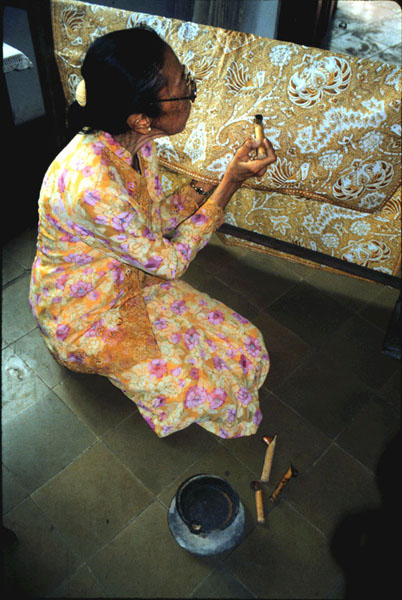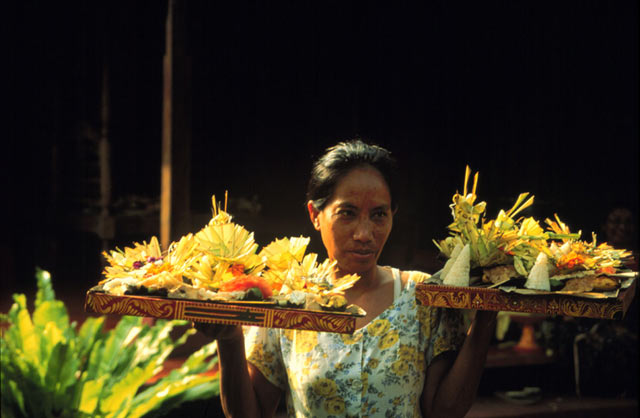Only women of the court create the
beautiful, ceremonial tulis (hand drawn) batik patterns that Mrs.
Praptini learned to make when she was ten. She demonstrates what her mother
taught her, drawing the intricate wax patterns freehand, making traceries
so fine they remind us of ice crystals on winter windows.
For a long time, Mrs. Praptini did not sell her batik, but when her husband
died, she realized she would not have enough money to send her daughter
to college. It was untenable that her only child would not have an opportunity
to continue learning--education is as necessary as food in Mrs. Praptini's
view. |
|
Like millions of other mothers in a similar
dilemma, she began to sell what she knew how to make. She bought white cloth
and made natural dyes from roots and bark. Because it takes three months
to complete a one-by-two meter length of batik, her work did not proceed
quickly. And since each color is applied separately, some of her complex
designs required twenty-seven immersions in different dyes. |
Traditionally, Balinese women spent
half of every day making offerings. But allocating so much time to the offerings
is impossible for many women now: they have jobs. Yet they are still personally
responsible for maintaining tradition. Their solution is to buy canang
(daily offerings) in the market from the Brahmin (priest caste) women like
Dayu.
Dayu gets up at six, before anyone else in her household, dresses, skips
breakfast, collects her products, and takes them to Ubud on the bemo
(public bus). Her mother, who lives in the next village, precedes her to
the market; some women arrive there as early as midnight. |
|
While Dayu is gone her woodcarver husband,
who works at home, takes care of their daughter, three, and son, six. After
selling until early afternoon, Dayu returns home to create more products
for the following day. Usually her husband does the cooking ("Last night,
for example, he fixed eggplant for dinner, with rice. I love that.") but
if dinner hasn't been prepared, Dayu cooks, and then continues making offerings
until midnight."
Dayu earns more than her husband does each month: fifty dollars compared
to his twenty dollars. "It's not a problem for him that I earn more," she
says. " We have separate monies but a mutual understanding that we will
both contribute to our expenses. |



